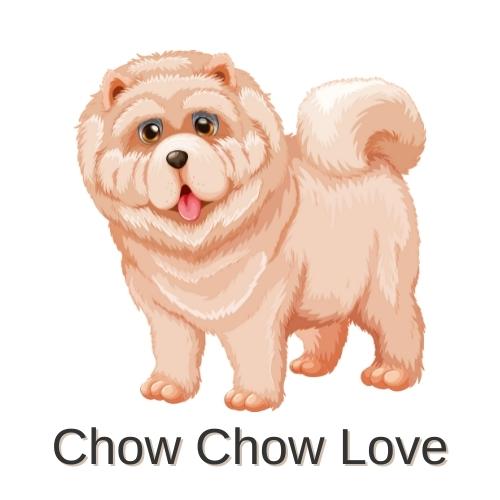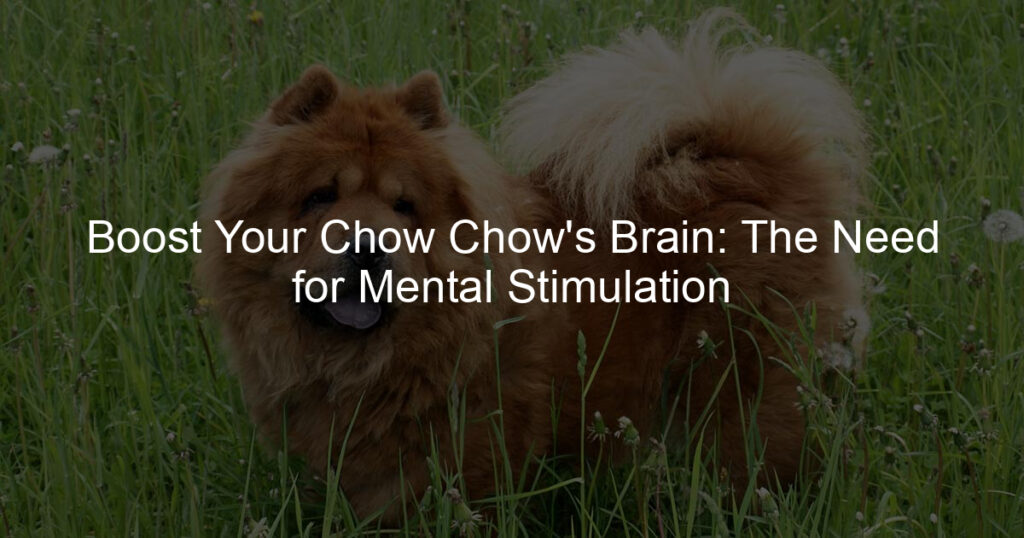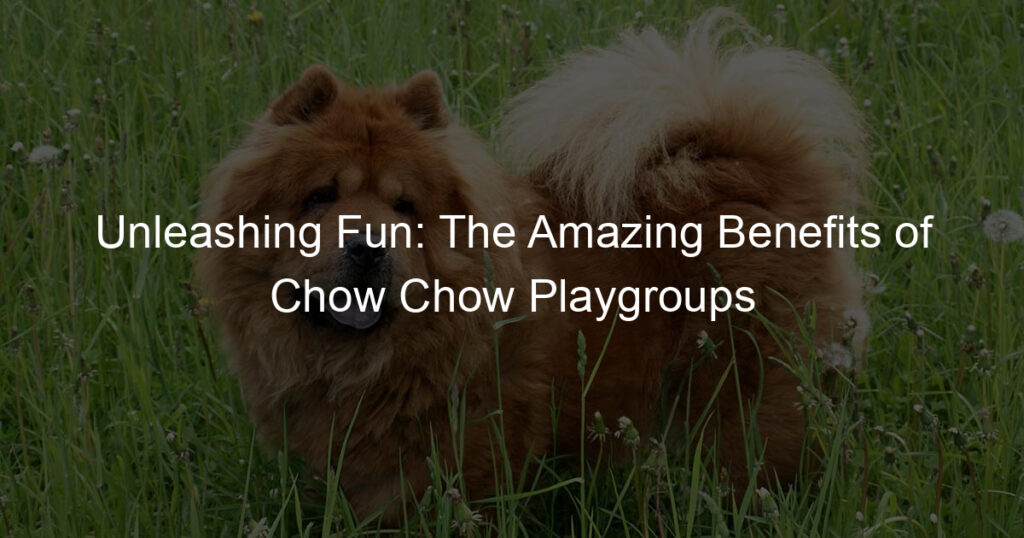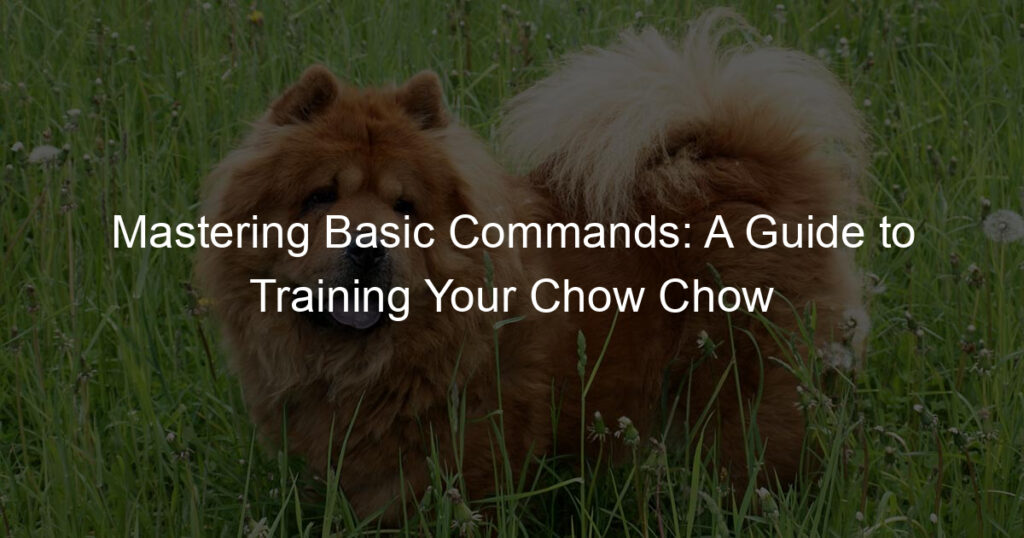
Introduction: The Importance of Mental Exercise for Chow Chows
Just like humans, dogs also need mental exercise to keep their minds sharp and healthy. This is especially true for the Chow Chow breed. In this article, we’ll explore why mental stimulation is crucial for these dogs and how it can significantly improve their overall health and happiness.
Chow Chows are known for their intelligence and independent nature. They are quick learners but can also be stubborn at times. This makes it important to keep their minds active and engaged. Without mental stimulation, Chow Chows can become bored and may develop behavioral issues such as excessive barking or chewing.
Mental stimulation is just as important as physical exercise for dogs. It helps to keep their minds sharp, reduces boredom, and can even help to prevent behavioral issues. Studies have shown that dogs who are mentally stimulated are happier and healthier. They are less likely to develop problems such as anxiety and depression.
Chow Chows have specific mental exercise needs due to their unique temperament and intelligence. They enjoy problem-solving activities and games that challenge their minds. Without proper mental stimulation, Chow Chows can become bored and may develop behavioral issues. Therefore, it’s crucial to provide them with plenty of mental exercises to keep them happy and healthy.
In the following sections, we’ll delve deeper into the Chow Chow breed, explore various mental activities suitable for them, and share success stories of Chow Chows who have benefited from mental stimulation. So, stay tuned to learn more about the importance of mental exercise for your Chow Chow.
Understanding the Chow Chow Breed
The Chow Chow is a unique breed of dog with a rich history and distinct physical characteristics. Let’s delve into understanding these physical attributes and how they can affect the mental health of this breed.
Physical Characteristics
-
Description of Physical Attributes
The Chow Chow is a medium to large-sized dog breed, known for its lion-like appearance and blue-black tongue. They have a thick double coat that can be either smooth or rough. The coat comes in various colors including red, black, blue, cinnamon, and cream. Their eyes are almond-shaped, giving them a somewhat stern expression. They have strong, muscular bodies with a broad and flat skull. The Chow Chow’s most distinctive feature is its high-set, bushy tail that it carries curled over its back.
-
How Physical Attributes Affect Mental Health
Physical attributes can have a significant impact on a Chow Chow’s mental health. Their thick coat, for instance, can make them uncomfortable in hot weather, leading to stress and irritability. Regular grooming can help alleviate this discomfort and improve their overall mood. Their strong, muscular bodies require regular exercise to maintain optimal physical and mental health. Lack of exercise can lead to boredom and destructive behavior. Their unique eyesight, due to their almond-shaped eyes, can also affect their behavior and interaction with their surroundings.
Understanding the physical characteristics of the Chow Chow breed is crucial in providing them with the right care and environment. This knowledge can help in maintaining their physical health and in turn, their mental well-being.
Behavioral Traits
Understanding the behavioral traits of Chow Chows is crucial for their mental health. Let’s delve into some of the common traits and how they relate to their mental well-being.
- Common behavioral traits in Chow Chows
Chow Chows are known for their unique characteristics. Here are some common behavioral traits:
| Behavioral Trait | Description |
|---|---|
| Independence | Chow Chows are known for their independent nature. They are often content spending time alone and can be somewhat aloof. |
| Loyalty | They are extremely loyal to their families. This loyalty can sometimes manifest as protectiveness. |
| Stubbornness | Chow Chows can be stubborn. They are intelligent and have their own minds, which can sometimes make training a challenge. |
- How these traits relate to mental health
These behavioral traits directly impact the mental health of Chow Chows. Their independence can lead to boredom if they are not mentally stimulated. Their loyalty, while a positive trait, can lead to separation anxiety if they are left alone for long periods. Their stubbornness, on the other hand, can make them resistant to change, causing stress if not managed properly.
Understanding these traits can help you provide the right mental stimulation for your Chow Chow, ensuring they remain happy and healthy. Remember, a mentally stimulated Chow Chow is a happy Chow Chow!
Mental Activities for Chow Chows
Chow Chows are known for their unique lion-like appearance and their independent nature. However, they are also intelligent dogs that require mental stimulation to stay happy and healthy. Let’s explore some of the mental activities that can benefit your Chow Chow.
Brain Games for Chow Chows
Brain games are an excellent way to keep your Chow Chow mentally stimulated. They not only provide fun but also challenge your dog’s problem-solving skills. Here are some examples of brain games suitable for Chow Chows:
- Puzzle Toys: These toys require your Chow Chow to figure out how to get a treat or toy hidden inside. They can keep your dog entertained for hours while also stimulating their brain.
- Hide and Seek: This classic game is a great way to engage your Chow Chow’s sense of smell and their love for hunting. Hide treats or toys around the house and watch your dog have fun finding them.
- Trick Training: Teaching your Chow Chow new tricks not only provides mental stimulation but also strengthens your bond with them. Start with simple commands and gradually move to more complex tricks.
Now, let’s discuss the benefits of these games for mental stimulation:
- Prevents Boredom: Brain games keep your Chow Chow engaged and prevent them from getting bored. A bored Chow Chow can develop destructive behaviors.
- Improves Mental Health: Regular mental stimulation can improve your Chow Chow’s overall mental health. It can prevent cognitive decline and keep your dog’s brain sharp.
- Strengthens Bond: Playing games with your Chow Chow strengthens your bond with them. It increases trust and understanding between you and your pet.
In conclusion, mental activities are essential for your Chow Chow’s overall well-being. They not only provide fun but also keep your dog’s brain active and healthy. So, make sure to include brain games in your Chow Chow’s routine.
Training Techniques for Mental Stimulation
Training your Chow Chow not only helps in behavior management but also provides a great source of mental stimulation. The following are some of the effective techniques that you can use:
- Effective Chow Chow Training Techniques
Chow Chows are intelligent dogs, but they can be stubborn. Here are some techniques that can help you train them effectively:
- Positive Reinforcement: This involves rewarding your Chow Chow for good behavior. The reward can be a treat, praise, or a favorite toy. This encourages them to repeat the good behavior.
- Clicker Training: This is a method where a small device that makes a ‘click’ sound is used to signal to the Chow Chow that they have done something right. The ‘click’ is followed by a reward.
- Consistency: Consistency is key in training any dog breed. Make sure to use the same commands and rewards for each behavior you are trying to teach.
- How These Techniques Stimulate the Chow Chow’s Brain
These training techniques do more than just teach your Chow Chow good behavior. They also stimulate their brain in the following ways:
- Problem-Solving: When you train your Chow Chow, you are essentially teaching them to solve a problem. For example, they learn that sitting when commanded results in a treat. This encourages them to think and make connections.
- New Experiences: Training introduces your Chow Chow to new experiences and challenges. This keeps their brain active and engaged.
- Memory: Regular training helps improve your Chow Chow’s memory. They learn to remember commands and the behaviors associated with them.
In conclusion, training your Chow Chow not only helps in managing their behavior but also plays a crucial role in their mental stimulation. Remember, a mentally stimulated Chow Chow is a happy and healthy Chow Chow.
Improving Your Chow Chow’s Mental Health
One of the most effective ways to enhance your Chow Chow’s mental health is by establishing a consistent routine. A routine provides structure and predictability, which can significantly improve your pet’s mental wellbeing. Let’s delve into the importance of routine and how it can help your Chow Chow.
Importance of Routine
A routine is not just about feeding or walking your dog at the same time every day. It’s about creating a predictable environment where your Chow Chow can feel safe and secure. A routine can help reduce stress, anxiety, and behavioral problems in dogs.
-
- How a consistent routine can improve mental health
Consistency is key when it comes to improving your Chow Chow’s mental health. A consistent routine can help reduce anxiety and stress in your pet. When your dog knows what to expect, it can help them feel more secure and less anxious. This can lead to improved behavior and a happier, healthier dog.
-
- Examples of a good routine for a Chow Chow
A good routine for a Chow Chow might include regular feeding times, daily walks, and consistent playtimes. For example, you might feed your Chow Chow at 7 am and 5 pm, take them for a walk at 8 am and 6 pm, and have playtime at 3 pm. This routine provides your dog with a predictable schedule, which can help improve their mental health.
Remember, every dog is unique, and what works for one Chow Chow might not work for another. It’s important to find a routine that works for your pet and stick to it. Consistency is key when it comes to improving your Chow Chow’s mental health.
Diet and Mental Health
What we feed our Chow Chows can have a significant impact on their mental health. Just as humans need a balanced diet for optimal brain function, so do our furry friends. Let’s delve deeper into how diet affects a Chow Chow’s mental health and what we can do to ensure they’re getting the nutrition they need.
-
- How diet impacts a Chow Chow’s mental health
A Chow Chow’s diet plays a crucial role in their mental well-being. A diet lacking in essential nutrients can lead to lethargy, anxiety, and even depression in dogs. For instance, Omega-3 fatty acids, found in fish and flaxseeds, are vital for brain health. A deficiency can lead to cognitive decline and behavioral issues. Similarly, vitamins like B6 and B12, found in meats and dairy, are essential for nerve function and can impact a dog’s mood and behavior.
-
- Recommended diet for optimal mental health
To ensure your Chow Chow’s mental health, it’s important to provide a balanced and nutritious diet. Here’s a simple table outlining some key nutrients and their sources:
| Nutrient | Source |
|---|---|
| Protein | Chicken, Beef, Fish |
| Fiber | Vegetables, Brown Rice, Oats |
| Omega-3 Fatty Acids | Fish, Flaxseeds |
| Vitamin B6 and B12 | Meat, Dairy |
Remember, every dog is unique, and what works for one might not work for another. It’s always best to consult with a vet or a pet nutritionist to create a diet plan that suits your Chow Chow’s specific needs.
In conclusion, a balanced diet is not just important for your Chow Chow’s physical health, but it’s also crucial for their mental well-being. By ensuring they get the right nutrients, you can help your furry friend lead a happier and healthier life.
Case Studies: Success Stories of Mental Stimulation for Chow Chows
Let’s delve into some real-life examples of how mental stimulation has positively impacted the lives of Chow Chows. These case studies will provide a clear understanding of the benefits of mental exercises for this breed.
-
- Case Study 1: Improving Behavior Through Mental Stimulation
Meet Max, a 3-year-old Chow Chow who was known for his stubbornness and occasional aggressive behavior. His owners decided to incorporate mental stimulation exercises into his daily routine. They started with simple tasks like ‘find the treat’ games and gradually moved to more complex activities like puzzle toys. Over time, they noticed a significant improvement in Max’s behavior. He became more obedient and less aggressive. This case study clearly shows that mental stimulation can help improve a Chow Chow’s behavior.
-
- Case Study 2: Overcoming Anxiety with Mental Exercises
Next, we have Bella, a 2-year-old Chow Chow who suffered from separation anxiety. Her owners began to engage her in mental exercises such as hide and seek, interactive toys, and obedience training. They also ensured to spend quality time with her, playing and training. Over a period of a few months, Bella’s anxiety levels reduced significantly. She became more confident and less anxious when left alone. This case study illustrates how mental exercises can help a Chow Chow overcome anxiety.
These case studies highlight the positive impact of mental stimulation on Chow Chows. It not only improves their behavior but also helps them overcome anxiety. Therefore, it’s crucial to incorporate mental exercises into your Chow Chow’s routine for their overall well-being.
| Case Study | Problem | Solution | Result |
|---|---|---|---|
| Max | Stubbornness and Aggression | Mental Stimulation Exercises | Improved Behavior |
| Bella | Separation Anxiety | Mental Exercises and Quality Time | Reduced Anxiety |
In conclusion, mental stimulation plays a vital role in a Chow Chow’s life. It not only helps them overcome behavioral issues and anxiety but also contributes to their overall mental health. So, make sure to include mental exercises in your Chow Chow’s daily routine.
Conclusion: The Lifelong Benefits of Mental Stimulation for Chow Chows
As we reach the end of our exploration into the world of mental stimulation for Chow Chows, it’s important to reflect on the key insights we’ve gathered. Mental exercise is not just a way to keep your dog entertained, it’s a crucial component of their overall health and wellbeing.
-
- Recap of the importance of mental exercise for Chow Chows
Chow Chows, with their unique personality and intelligence, require regular mental stimulation to stay happy and healthy. Mental exercises help to reduce destructive behaviors, improve obedience, and strengthen the bond between you and your pet. They also contribute to the overall mental health of your Chow Chow, helping them to be more confident, content, and well-adjusted.
-
- Long-term benefits of consistent mental stimulation
Consistent mental stimulation has long-term benefits that extend beyond immediate behavior improvements. It can help to delay the onset of cognitive decline in older dogs, keeping their minds sharp and active. Furthermore, it can reduce the risk of anxiety and depression, contributing to a happier, healthier life for your Chow Chow.
In conclusion, mental stimulation is not just a fun activity for your Chow Chow, but a lifelong investment in their mental health. By incorporating mental exercises into your dog’s routine, you are setting them up for a lifetime of benefits. Remember, a mentally stimulated Chow Chow is a happy Chow Chow!














